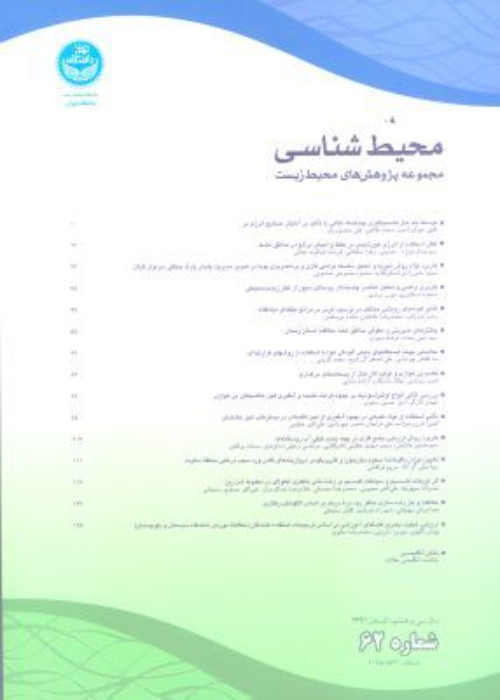Effect of Calcium Carbonate and Calcium Sulfate on E.coli Survival in Fine Sand Mixture
Author(s):
Sepehrnian. , Mahboubi , A.A. , Mosaddeghi , M.R. , Khodakaramian , Gh.R. , Safari Sinejani , A.A
Abstract:
One of the most important characteristics of pathogenic bacteria which influenced water resources is their survival ability under natural condition. Most of the bacteria can not survive more than 60 days after being excreted from living bodies, unless minimum optimized condition is provided for them, because environmental conditions are unfavorable for bacteria. The survival of bacteria in soil depends on several factors including bacterial species, competition with other microorganisms, type of manure and its application style, soil moisture, soil temperature, nutrient availability, soil aeration and its soluble salts, soil pH and texture and some other factors. Extractions of soil saturation paste with salinity higher than 25 dS m-1 have adverse effect on microorganism activity. Researches showed that rapid passage of water through soil profile caused severe changes in osmotic pressure of soil solution, which has high effects on microorganism survival. Given that soil moisture is the main affecting factor on bacterial survival, appropriate soil moisture for bacterial survival is nearly 75% to 100% of field capacity (FC). Under this limitation condition aerobic and anaerobic bacteria are active. Although many studies have been conducted on survival of bacteria, little is known about the bacteria survival in Iran and the data are scanty. Considering that there are 28 million hectares of gypsiferous soils in Iran and approximately 65% of soils in Iran are calcareous, it seems that the role of calcium carbonate and calcium sulfate on control and survival of bacteria to reach the surface and subsurface water is important. Hence, in this study, by keeping temperature and moisture in optimum conditions, the effects of these compounds on the survival of E. coli have been investigated at different times. Materials and methodsIn this study, the effects of CaCO3 and CaSO4 compounds on Escherichia coli survival under constant moisture and temperature condition were evaluated. Using CaCO3, CaSO4 and fine sand particles with 0.01mm diameter, two types of mixtures of 20%, 40%, 60% and 80% levels were prepared. FC extents of mixtures were measured using pressure plate device. Prepared mixtures were sterilized at 121ºC for 15 minutes. Water volumes were added to reach to the FC extent. Extraction of manure was diluted in 1:20 proportion using distilled water. One ml water was added to mixtures containing 4.8×105 CFU of E. coli. In order to maintain competitive conditions with other microorganisms the prepared mixtures were incubated at 28ºC. After 2.5, 5, 10 and 15 hours incubated samples were collected for further analyses. Thereafter, 0.1 ml amount of each extracted samples were added to the plates containing Eosin Methylene Blue (EMB) medium. The plates were incubated for 18-24 hours at 37ºC, and bacterial CFU were counted using colony counter. This experiment was carried out in a randomized block design by three replicates and the data were analyzed using SAS software.
Language:
Persian
Published:
Journal of Environmental Studies, Volume:38 Issue: 2, 2012
Page:
117
magiran.com/p1037448
دانلود و مطالعه متن این مقاله با یکی از روشهای زیر امکان پذیر است:
اشتراک شخصی
با عضویت و پرداخت آنلاین حق اشتراک یکساله به مبلغ 1,390,000ريال میتوانید 70 عنوان مطلب دانلود کنید!
اشتراک سازمانی
به کتابخانه دانشگاه یا محل کار خود پیشنهاد کنید تا اشتراک سازمانی این پایگاه را برای دسترسی نامحدود همه کاربران به متن مطالب تهیه نمایند!
توجه!
- حق عضویت دریافتی صرف حمایت از نشریات عضو و نگهداری، تکمیل و توسعه مگیران میشود.
- پرداخت حق اشتراک و دانلود مقالات اجازه بازنشر آن در سایر رسانههای چاپی و دیجیتال را به کاربر نمیدهد.
In order to view content subscription is required
Personal subscription
Subscribe magiran.com for 70 € euros via PayPal and download 70 articles during a year.
Organization subscription
Please contact us to subscribe your university or library for unlimited access!


